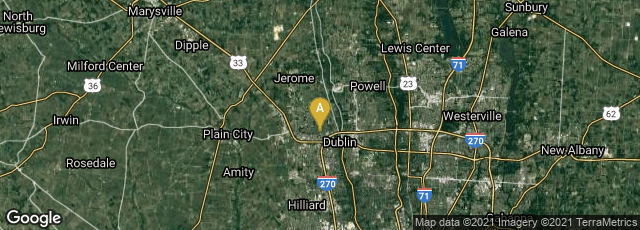

A: Dublin, Ohio, United States
On October 1, 2015 OCLC, headquartered in Dublin, Ohio, announced in a news release on its website that it printed its last library catalogue cards. Frankly, I was surprised that OCLC waited this long to discontinue what had been, for all intents and purposes, an obsolete practice for at least ten or twenty years. From their press release:
"OCLC began automated catalog card production in 1971, when the shared cataloging system first went online. Card production increased to its peak in 1985, when OCLC printed 131 million. At peak production, OCLC routinely shipped 8 tons of cards each week, or some 4,000 packages. Card production steadily decreased since then as more and more libraries began replacing their printed cards with electronic catalogs. OCLC has printed more than 1.9 billion catalog cards since 1971.
"Today, most libraries use online public access catalogs (OPACs) as part of an integrated library system, or a cloud-based library management system like OCLC's WorldShare Management Services, where the library catalog and services are hosted and maintained outside the library, in the cloud.
" 'We've already jumped into the new world,' said Nevine Haider, Head of Technical Services, Concordia College Library, in Bronxville, New York, whose catalog cards were among the last printed today. 'We’ve had online public access to our collection for years. The print card catalog has served as our back-up. So we’re ready to move on.'
"WorldCat represents a 'collective collection' of the world’s libraries. WorldCat connects library users to hundreds of millions of electronic resources, including e-books, licensed databases, online periodicals and collections of digital items. As the needs of libraries and their users expand, OCLC works with libraries to collect, manage and share new types of library data to ensure libraries are meeting the expectations of users.
" 'The vast majority of libraries discontinued their use of the printed library catalog card many years ago,' said Prichard. 'The printing of the last cards today is largely symbolic. But it is worth noting that these cards served libraries and their patrons well for generations, and they provided an important step in the continuing evolution of libraries and information science.' "